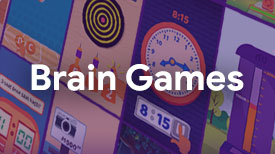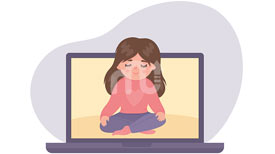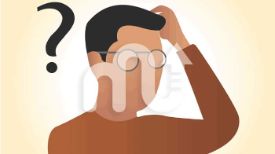ADHD Symptoms in Adults and How to Treat
We shared several articles about ADHD in children, but what about the ADHD symptoms in adults?
If you have a child with ADHD, you need to consider the possibility that you too may have ADHD because genetic factors contribute to the development of ADHD. Although attention deficit hyperactivity disorder (ADHD) is more common in children, ADHD symptoms in young adults or adults can also be observed, especially if they have a history of ADHD in their childhood.
Let’s first go through the definition, and then we’ll clarify the ADHD symptoms in adults, adult ADHD treatments, and more:
Definition of ADHD in Adults
Adult attention deficit hyperactivity disorder (ADHD) is a mental health disorder that includes a combination of constant problems. These persistent problems can be mentioned as hyperactivity, difficulty paying attention, and impulsive behavior.
ADHD Signs and Symptoms in Adults
Signs and symptoms of ADHD in adults and children may differ. Children often experience difficulties in learning, while adults may experience problems in their work and social life. If you suspect that you have ADHD, you can check the following list of ADHD symptoms in adults and see if you have any of the symptoms. Also, don’t forget to look at the most common questions about ADHD.
Checklist of ADHD Symptoms in Adults
Here we have created a detailed checklist of ADHD symptoms in adults including physical, inattentive and untreated symptoms.
Check our “ADHD symptoms in adults quiz” list and remember that you may have one or more of the symptoms if you have ADHD. In this case, it may be beneficial for you to consult an expert. You may need to take an ADHD test, evaluate different treatment options, do relevant activities and exercises for concentration. We will also mention ADHD medication for adults, but first, let's go through some real-life examples of ADHD symptoms.
Physical Symptoms of ADHD in Adults
Although we’re talking about a mental disorder, it is possible to observe important physical symptoms of ADHD in adults as follows:
- Hot temper
- Excessive physical movement
- Impulsiveness
- Excessive talking
- Not being able to stand still
- Restless foot syndrome
Inattentive Symptoms of ADHD in Adults
When thinking of the signs and symptoms, the first thing that comes to mind is the hyperactivity symptoms. However, these symptoms are generally less destructive and active than those of the predominantly hyperactive-impulsive.
Here are the main inattentive ADHD symptoms in adults:
- Becoming confused easily
- Daydreaming frequently
- Missing details
- Becoming distracted easily
- Trouble focusing on tasks
- Becoming easily bored
- Difficulty learning and organizing new information
- Trouble completing tasks
- Losing items needed to stay on task
- Not listening attentively
- Difficulty following instructions
Untreated Symptoms of ADHD in Adults
It is known that a lack of ADHD treatment in adults can cause disorders extremely difficult to live with. When signs and symptoms in adults are left unmanaged, it can seriously affect every area of life in a negative way.
Some of the untreated symptoms can be:
- 78% more likely to be addicted to tobacco
- 58% more likely to use illegal drugs
- Anxiety, depression, and physical ailments
- More likely to get or cause an unwanted pregnancy
- More likely to contract a sexually transmitted disease
- Higher risk of destroying a car or other traffic fatalities
| Symptom | Behaviour |
|---|---|
| Physical | Hot temper |
| Excessive physical movement | |
| Impulsiveness | |
| Excessive talking | |
| Not being able to stand still | |
| Restless foot syndrome | |
| Inattentive | Becoming confused easily |
| Daydreaming frequently | |
| Enjoying play with other children of their own sex. | |
| Missing details | |
| Becoming distracted easily | |
| Trouble focusing on the tasks | |
| Becoming easily bored | |
| Difficulty learning and organizing new information | |
| Trouble completing tasks | |
| Losing items needed to stay on task | |
| Not listening attentively | |
| Difficulty following instructions | |
| Untreated | 78% more likely to be addicted to tobacco |
| 58% more likely to use illegal drugs | |
| Anxiety, depression, and physical ailments | |
| More likely to get or cause an unwanted pregnancy | |
| More likely to contract a sexually transmitted disease | |
| Higher risk of destroying a car or other traffic fatalities |
ADHD Symptoms in Adults vs. in Childhood
As we have mentioned, attention deficit hyperactivity disorder is not observed only in children. 30% to 70% of kids with ADHD continue having symptoms of ADHD when they grow up and become adults.
Thus, knowing every detail about ADHD in children can also help to understand ADHD in adults. The symptoms experienced may look similar but they change as children grow older. So let's compare the list of symptoms in adults and children:
| ADHD in Childhood | ADHD in Adulthood |
|---|---|
| School failure or under-achievement | Job failure or underemployment |
| Multiple injuries | Car wrecks or risk-taking |
| Drug experimentation | Drug dependence |
| Oppositional defiant disorder or conduct disorder | Criminal involvement or antisocial personality disorder |
| Impulsivity or carelessness | Unwanted pregnancy or STDs |
| Repetitive failure | Hopelessness, frustration, resignation |
Frequently Asked Questions About ADHD in Adults
Does ADHD create anger problems in adults?
Yes, ADHD creates anger problems in adults. Actually, having difficulty in controlling emotions is at the top of the ADHD symptoms in adults checklist. ADHD and anger problems in adults are closely connected to each other.
Are there different symptoms of ADHD in young adults?
The symptoms of ADHD in young adults can differ, as in any age group. Although the symptoms of ADHD seem to be the same in general, they differ among age groups, as living conditions change, responsibilities increase, and social life diversifies.
Can adults have ADHD without being hyperactive?
Yes, they can. It is known as ADHD, with a Predominantly Inattentive presentation. However, signs and symptoms of ADHD in adults may differ. Adults with this presentation often daydream and have a hard time focusing.
Does ADHD affect an adult’s career?
Yes, unfortunately experiencing difficulty in the job is at the top of the list of ADHD symptoms in adults. Adults with ADHD are at an increased risk of poor performance besides social problems. They usually change jobs more frequently.
What could the workplace or employer do to help an adult with ADHD?
It is illegal to discriminate against any employee on the basis of health or mental health issues. Employers who comply with the law must make arrangements based on such special needs of their employees. For example, provisions can be made inline with the physical symptoms, planning the timing of the given work accordingly, or eliminating the elements that may distract attention.
How effective is ADHD treatment without medication?
Medication-free treatment has proven to be at least as effective and sometimes even more effective than the medical treatment. There are a wide variety of psychological treatments and psychotherapies used to effectively treat symptoms.
Adult ADHD treatments
Adult ADHD treatment options for adults may vary, as signs and symptoms change. There are many different ADHD treatment guidelines adults may follow.
ADHD Medications
Various antidepressants or synthetic stimulants can be used after diagnosis by expert psychiatrists. Adult ADHD treatment with medication for lack of attention is especially important and recommended for those with advanced attention problems.
Prescribed medicines may not give positive results right in the beginning. That's why your doctor can try different medications for ADHD to find the best fit for your condition. You should seek professional advice before taking any medicine. You should also remember that supporting medicational ADHD treatment with “without medication methods” would significantly speed up the recovery period.
ADHD Treatment without Medication
Treatment without medication is one of the most common subjects among ADHD treatment options in adults that people are curious about. Without medication, there are various ADHD treatment guidelines adults can follow and help reduce the symptoms.
Therapy
Therapy is one of the most common treatments without medication. You can receive cognitive-behavioral therapy from an expert psychologist. By increasing personal awareness with expert help, lack of attention problems and symptoms can be treated.
Exercises and Foods
For adults who do not want to take medicine, do not have enough symptoms to use medication, or want to overcome the lack of attention problems by themselves, there are some solutions. You need to reorganize your habits for a medication-free treatment.
For instance, reducing the use of sugar and drinking carrot juice is good to treat a lack of attention. Physical exercise and mental exercise are good for attention problems. Mental exercises, like math games for adults besides cognitive skills exercises, are particularly effective in ADHD treatment without medication.
MentalUP is one of the best ADHD apps for adults! 💯
The award-winning app is developed by specialists, academicians, and game designers. It aims to improve the main struggles that people with ADHD experience: attention, focus, reasoning, organizing, decision making, and more. 🤩
Only 20 minutes of exercise a day can be enough to see a significant change! MentalUP can be used on your computer, mobile, or tablet so that you can improve your skills anytime, anywhere. 🙌
Download MentalUP today, and start tomorrow better! 🚀✨ You can track your progress with detailed performance tools and strengthen the skills you need to improve with 150+ ADHD-friendly gamified exercises.
Social Support
If you want to succeed in the treatment process, it would be helpful to inform family, friends, relatives about your ADHD problems. Besides, it is possible to get together with other people who suffer from the same issues to share and discuss their experiences.
Forums are a good example of this. On such platforms, individuals with lack of attention can discuss and improve each other with the methods that have worked for them.





